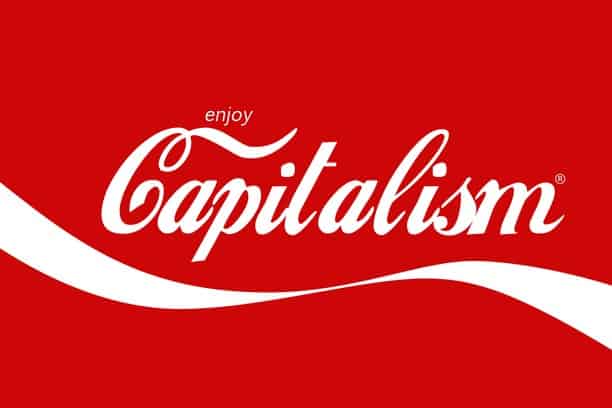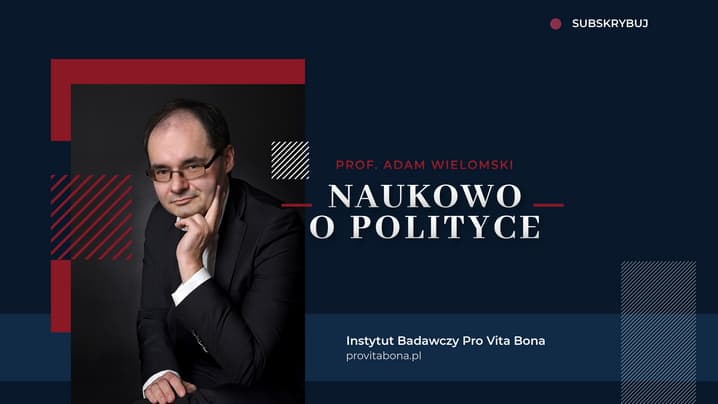Conservatism and capitalism are often equated today. The historical record, it could be argued, suggests a radically different view. Conservatism -‑ in the precise, historical, classical sense -‑ has not been defined by a defence of capitalism, civil libertarianism, „libertinism”, or the „minimal state”. „Capitalism” has never been a rallying cry for real conservatives. Indeed, classical conservatives were the first to provide a comprehensive critique of capitalism, that „great solvent of all tradition in the modern era”.
Genuine conservatism requires strong (as distinct from big) government, and is generally hostile to the libertarian values which the free market thrives on and promotes. Seen in this perspective, the „relentless engine of capitalism” has continually crushed the traditional social structures and values which classical conservatives esteem. Historically, „true Tory” thinkers and politicians have not objected to the notion of government action designed to offset some of the more rapacious tendencies of the free market, and to ensure the good of „the commonweal”.
The political lineage of classical conservatism (in the Anglo‑American context) is that of Britain’s „Tory Democracy” and so-called „feudal socialism”, paradigmatically represented by Disraeli, and Canada’s „National Policy”, represented by Sir John A. Macdonald, and not of John Locke, Adam Smith, and the Manchester School. As Canadian philosopher George Parkin Grant once remarked, it is liberalism, not conservatism, that is „the perfect ideology for capitalism”.
The latter‑day descendants of the classical conservatives ‑- unlike the descendants of the classical liberals ‑- point out the inadequacy of purely economic palliatives and material „solutions” in overcoming the more pressing social, spiritual, and psychological problems that plague humanity in the modern age. As such, they attach profound importance to factors of social cohesion such as family, community, culture, and religion, and recognize the paramountcy of such collective moral and social bonds over economic pursuits. From this perspective, one can see that capitalism ‑- no less than socialism ‑- tears and wounds the social fabric.
In our society, almost all issues are debated within the paradigm of economics (even the so‑called „social issues”), so that the language of economics itself ‑- the language of „utility”, „efficiency”, and „cost‑effectiveness” -‑ becomes normative. In his earlier days, American commentator George F. Will had described well the difficulty a commercial civilization has in „assigning values other than economic values; the difficulties it has doing justice to important intangibles” („Misplaced Reverence”, in The Pursuit of Virtue and Other Tory Notions, 1982, p. 28.) It is the existence and condition of these „important intangibles” that is the real, substantive -‑ albeit unspoken -‑ issue facing us today, not the surrogate „issues” that fill our newspapers and air‑waves, and preoccupy the thoughts of so many persons who call themselves „conservative”.
As George Grant has said, the great job now does not lie in further economic expansion and quantitative progress, „but in trying to bring quality and beauty of existence into that technological world ‑- to try and make it a place where richness of life may be discovered” („The Minds of Men in the Atomic Age,” in Canadian Political Thought, 1985, pp. 289.) Libertarianism and neoconservatism have, in many ways, confounded contemporary conservative philosophy, and transformed the image of conservatism precisely at a time when the „traditionalist” view could have possibly garnered a greater and deeper appeal.
Conservatism had developed during Romantic, Victorian, and Edwardian times as a „humanistic” (if „quixotic”) philosophy which included Coleridge, Southey, Ruskin, G.K. Chesterton, and the Harvard New Humanists as its champions in the Anglo‑American world. Tory reformers such as Lord Shaftesbury and Disraeli sensed the instinctive conservatism of the common man. The extension of the franchise in Britain beyond the middle classes, in the latter half of the nineteenth century, resulted in the rout of the bourgeois‑capitalist laissez‑faire Liberals. Similarly, Bismarck enacted the most advanced social legislation and worker‑protection laws of his time in Wilhelmine Germany.
Today, conservatism is associated in the public mind with the „virtue of selfishness”, and an inveterate antagonism towards any form of economic regulation -‑ or assistance to the poor. Conservatism can no longer be perceived as a philosophy which strives for the „decent” or „humane”, now that it has the mill‑stone of „social‑Darwinistic” capitalism around its neck. For capitalism, in itself, clearly makes no appeal to what is best in human beings, to the „good side” of their nature. Indeed, it is often‑times involved in a conscious repudiation of such qualities. The modern‑day rapprochement between classical conservatism and capitalism has been, largely, a Faustian bargain, which, for the sake of petty political advantage, has robbed conservatism of its theoretical unity and consistency, and cost it its very soul ‑- the very things it is worthwhile to fight for.
Mark Wegierski



